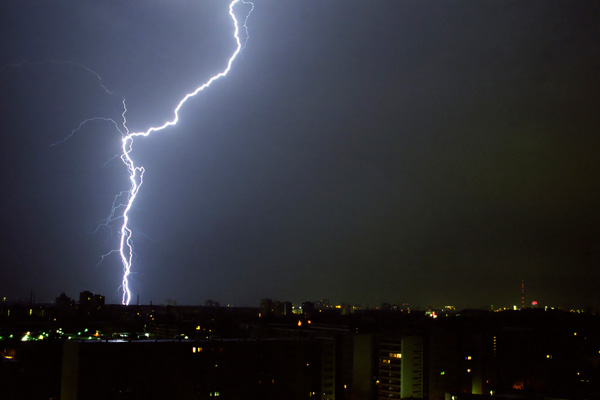You may still need a standby generator occasionally despite your home being connected to the grid. You never know when an emergency will pop up, so it is recommended that you have one on your property. The generator can power your appliances, lights, and security system during power outages. However, you shouldn’t just store a whole-house generator in a corner of your home. It should be checked regularly with standby generator maintenance to ensure it is in good condition. Otherwise, it might not operate when you need it. This article discusses how to conduct standby generator maintenance properly.
Generator Preventive Maintenance Schedule

Homeowners must learn the basics of power generator maintenance to conduct tasks every week and month. Being diligent will help prolong the generator’s lifespan and increase reliability during emergencies.
Capable technicians need to take the lead when performing advanced maintenance work. Schedule them at least twice a year to conduct semiannual and annual tasks as follows:
Weekly Generator Maintenance Tasks
- Set the generator on AUTO. Run the generator to see if there are any errors.
- Make sure that you have the right type of fuel. Look if there are any leaks around the unit.
- The circuit breaker should be kept closed and secure.
Monthly Generator Maintenance Tasks

- Remove any trash in the perimeter.
- Ensure that no animals are nesting in the generator.
- The oil level should be kept almost full to achieve the best possible performance.
- Check how much coolant is left in the overflow tank.
- Confirm that the battery is free of corrosion and works as it should.
- Look for loose wires and terminal corrosion.
- Check if there are any signs of damage to the gas pipes.
Biannual Whole-House Generator Tasks
- Have a licensed service technician conduct a full battery diagnostic.
- A professional should check the drive belts, exhaust, induction pipes, coolant heater, and enclosure.
- Inspect the electrical system, air conditioning wiring, coolant lines, fuel system, and lubrication.
Annual Standby Generator Tasks
- Change the fuel filter, air filter, oil filter, generator oil, and spark plug.
- Check the alternator for moisture, direct heat, or dirt.
- Inspect the transfer switch and test the load bank.
- If needed, the crankcase breather should be cleaned, and the cooling system flushed.
- Conduct a fuel test and reconditioning for diesel generators. Remove the water from the tank.
Tips For Maintaining A Standby Generator
Here are five tips for maintaining your whole-house generator:
Consider The Environment
Standby generator maintenance includes a lengthy task list that varies in frequency and difficulty. Consider some of the factors that impact the generator’s state before you begin doing any of them. Start with the environment where the unit is located. Is it in a place where you can control the humidity and temperature? Is it placed outdoors where it’s more vulnerable to the elements? Are you sure it is well protected from the rain, sun, and debris? What is the climate in your area? Is it wet, cold, and windy? Or is it dry, hot, and dusty? Harsher environments typically mean maintenance is more crucial.
Assess The Whole-House Generator Workload
Think about how many times you had to use the generator in the past year and how long the power outages lasted. Some places do not experience power disruptions as much, while other areas expect them to occur at certain times of the year because of recurring problems. Outages can last for a few minutes or several days, depending on the outage’s root cause. A generator that runs often will wear out its parts faster. Therefore, it needs more attention than a generator that isn’t used as frequently.
Factor The Weather

The weather significantly affects a generator. Some areas are likely to have storms wherein strong wind can cause telephone poles and other infrastructures to fall. It can also topple trees, and their branches may damage electrical wires in their vicinity. Keep an eye out for these during the months these issues are likely to crop up. Book professional maintenance visits beforehand so you don’t have to worry when the storm season starts. The same holds true for people living in the north, where there are unpredictable winters. Complete all essential maintenance a month or so before the harsh weather begins.
Check Generator History
If you recently purchased a house that has a standby generator, it is in your best interest to know the unit’s history. Discuss it with the previous owner if possible so you can ask them about essential details, like the unit’s age and condition. Inquire about maintenance papers signed by the technician who worked on them. Ask about the last time the generator was professionally checked. You’re lucky if the unit received regular maintenance and is fully functional. Contact a local professional to come by and take a look if it isn’t operational.
Get Help for Advanced Power Generator Maintenance
A homeowner can do most maintenance tasks, but others are still best left in the hands of a professional. Advanced tasks are complicated and time-consuming. They need to be done by a trained and experienced expert to ensure they are done well. Professional technicians can find problems immediately, while ordinary individuals may not notice them. They can perform thorough checks and diagnostic tests. They can also handle technical jobs and bring special tools to do the tasks faster. During visits, they may also have common spare parts, so replacements are made quickly when needed. Technicians will also conduct a thorough cleaning. This way, the generator runs like new when professional maintenance is finished.
Call Professionals for Other Whole-House Generator Concerns
Technicians also help with operational safety. This way, you can ensure you and your family are out of harm’s way. Problems can happen without warning, so if you notice something is wrong with your generator, call for help immediately. You may also contact them when you notice that your generator’s efficiency plummets. They will determine the reason and improve the situation. You can also arrange a long-term maintenance agreement to get regular visits and substantial savings.
Conclusion
Our lives today highly depend on machines, which require power to operate. Homeowners use appliances to do chores, find comfort, secure their homes, get entertainment, and more. A power outage will keep all appliances from working unless you have a backup plan. Prudent homeowners get standby generators to retain normalcy. These units require maintenance, so have professionals help you prepare for emergencies.
Call Tevis Energy For All Of Your Standby Generator Needs

Tevis Energy is a leading generator installation services provider throughout central Maryland and southern Pennsylvania. Aside from backup generator installation, we also offer generator maintenance, repair, and replacements services. We only have the best service contractors on staff, and they are well-trained in the most advanced generator techniques and methods. Call or contact us online today to know more about whole-house generator installation and services. Our industry experts are ready to answer all your generator questions. We offer free, in-home estimates. Call Tevis Energy today!
You can click here to contact us now or call us at (410) 876-6800 to find out more!
